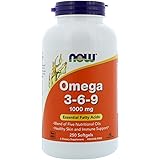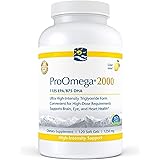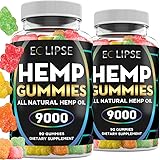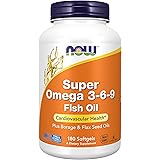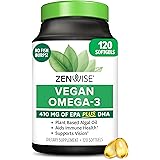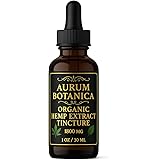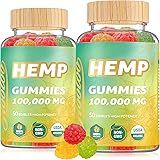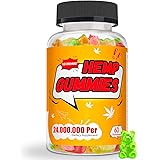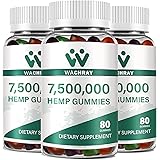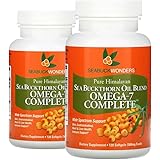In a world increasingly focused on holistic wellness and preventative health, many individuals find themselves navigating a complex landscape of dietary advice and nutritional supplements. The quest for essential nutrients, particularly omega-3 fatty acids, often leads to discussions around fish oil – a common, yet for some, undesirable, source. However, as highlighted in the accompanying video, an exceptional plant-based alternative exists: hemp oil, specifically ACO Certified Organic hemp oil, offers a compelling profile of features and benefits that warrant closer examination.
Hemp oil, derived from the seeds of the *Cannabis sativa* plant, but distinct from cannabis extracts containing THC, is a nutritional powerhouse. Its rich composition addresses several critical aspects of human health, offering a multifaceted approach to well-being that extends beyond mere supplementation. This comprehensive overview delves into the scientific underpinnings of hemp oil’s efficacy, elaborating on its unique characteristics and how it stands as a superior choice for a diverse audience, from health enthusiasts to those with specific dietary needs.
The Nutritional Symphony of Hemp Oil: A Balanced Approach to Essential Fatty Acids
At the core of hemp oil’s formidable nutritional profile lies its exceptional fatty acid composition. Unlike many dietary oils, hemp oil boasts the highest percentage of omega-3 fatty acids among all food sources. Crucially, it presents an optimally balanced 3:1 ratio of omega-6 to omega-3 essential fatty acids. This specific ratio is critical for human physiology, as imbalances in these fatty acids are often implicated in chronic inflammatory conditions and various health disorders.
Omega-3 and Omega-6: The Delicate Balance
While both omega-3 and omega-6 fatty acids are vital for health, the typical Western diet is notoriously high in omega-6s, leading to ratios as skewed as 15:1 or even 20:1. Such an imbalance can promote systemic inflammation, contributing to issues like cardiovascular disease, autoimmune disorders, and metabolic syndrome. The 3:1 ratio found in hemp oil helps counteract this prevalent dietary discrepancy, fostering a healthier inflammatory response. This makes hemp oil an invaluable dietary component for those seeking to mitigate inflammatory pathways naturally.
Furthermore, hemp oil is characterized by over 90% polyunsaturated fatty acids (PUFAs), including alpha-linolenic acid (ALA), an omega-3 fatty acid, and linoleic acid (LA), an omega-6 fatty acid. These PUFAs are integral to cellular function, nerve health, and overall metabolic efficiency. They play a significant role in membrane fluidity and are precursors to eicosanoids, signaling molecules that regulate inflammation, immune function, and blood clotting.
Cardiovascular Health and Cholesterol Management with Hemp Oil
The cardiovascular benefits of hemp oil are substantial, largely attributed to its fatty acid profile and absence of cholesterol. Its high content of polyunsaturated fatty acids actively works to combat “bad” cholesterol (low-density lipoprotein or LDL-C) while simultaneously helping to elevate “good” cholesterol (high-density lipoprotein or HDL-C) levels in the body. This dual action is a cornerstone of cardiovascular protection, effectively reducing the risk of atherosclerosis and coronary artery disease.
Phytosterols: Nature’s Cholesterol Fighters
Beyond its fatty acid composition, hemp oil is rich in phytosterols. These plant sterols are structurally similar to cholesterol and compete with dietary cholesterol for absorption in the gut. Consequently, their presence significantly reduces the amount of cholesterol absorbed into the bloodstream. Scientific studies have indicated that consistent intake of phytosterols can lead to a notable reduction in LDL-C levels, further reinforcing hemp oil’s role as a potent ally in maintaining a healthy lipid profile.
The combination of these elements—optimal omega ratios, high PUFA content, and cholesterol-fighting phytosterols—positions hemp oil as a superior choice for individuals proactively managing their cardiovascular health. It offers a natural, cholesterol-free pathway to support heart function and maintain vascular integrity.
Hemp Oil for Inflammation and Hormone Health: The Power of GLA
One of the distinctive compounds in hemp oil is Gamma-Linolenic Acid (GLA), a unique omega-6 fatty acid. Unlike its counterpart, linoleic acid, GLA possesses potent anti-inflammatory properties. Once consumed, GLA is converted into dihomo-gamma-linolenic acid (DGLA), which can then be metabolized into anti-inflammatory eicosanoids. This pathway directly contributes to reducing systemic inflammation, offering relief for various conditions characterized by inflammatory responses.
Hormonal Balance and Hypoallergenic Properties
The significance of GLA extends to hormone health, where it plays a critical role in regulating prostaglandin production. Prostaglandins are hormone-like substances that control numerous physiological functions, including inflammation, blood pressure, and smooth muscle contraction. For women, GLA is particularly beneficial for alleviating symptoms associated with hormonal fluctuations, such as premenstrual syndrome (PMS) and menopausal discomfort. Its anti-inflammatory action also contributes to managing conditions like hypertension.
Furthermore, hemp oil stands out as a hypoallergenic food. This characteristic makes it an incredibly safe and versatile dietary addition, especially for individuals prone to allergies or sensitivities. The video aptly notes its safety for pregnant and breastfeeding women, children, and even animals, underscoring its broad applicability. For pets, the rich fatty acid content contributes to a shiny coat and healthy skin, a tangible benefit often observed by pet owners.
Antioxidant Defense and Detoxification with Hemp Oil
The human body is constantly exposed to free radicals, unstable molecules that can damage cells, proteins, and DNA, leading to oxidative stress and contributing to aging and various chronic diseases. Hemp oil offers robust protection against this cellular damage through its rich content of Vitamin E and chlorophyll.
Vitamin E: A Fat-Soluble Antioxidant
Hemp oil is an excellent source of Vitamin E, a fat-soluble vitamin renowned for its powerful antioxidant properties. Vitamin E works by neutralizing free radicals, thereby protecting cell membranes from oxidative damage. This crucial nutrient supports immune function, promotes healthy skin, and contributes to overall cellular integrity. Its presence in hemp oil enhances the oil’s capacity to serve as a daily shield against environmental aggressors and metabolic byproducts.
Chlorophyll: The Green Advantage
The vibrant green color of unrefined hemp oil is a visual indicator of its chlorophyll content. Chlorophyll, the pigment responsible for photosynthesis in plants, offers significant health benefits to humans. It is celebrated for its internal deodorizing effects, helping to neutralize body odors by binding to odor-causing compounds. More profoundly, chlorophyll has been researched for its anti-carcinogenic properties. It can form molecular complexes with certain carcinogens, inhibiting their absorption and promoting their elimination from the body. This dual action of antioxidant protection and internal detoxification adds another layer to hemp oil’s impressive health profile.
Practical Integration: Incorporating Hemp Oil into Your Daily Routine
Beyond its impressive nutritional data, integrating hemp oil into one’s daily diet is remarkably simple. As the video emphasizes, its delicate nature means it is unsuitable for high-heat cooking, baking, or frying, which can degrade its beneficial fatty acids and antioxidants. Instead, hemp oil excels when used in its raw form, preserving its full spectrum of nutrients.
Creative Culinary Uses
Treat hemp oil as you would a premium olive oil. Drizzle it generously over fresh salads, roasted vegetables (added after cooking), or grain bowls to impart a subtle, nutty flavor and a nutritional boost. It serves as an excellent bread-dipping oil, perhaps mixed with herbs and spices for an elevated experience. For breakfast, swirl a tablespoon into smoothies, yogurt, or oatmeal. It can also be incorporated into homemade dressings, marinades (for raw preparations or applied post-cooking), pestos, and dips like hummus. Its versatility allows for seamless inclusion in numerous dishes without compromising its integrity.
For those adhering to vegetarian or vegan diets, hemp oil presents a particularly vital alternative to traditional omega-3 sources like fish oil. It eliminates the concern of “fish burps” and provides a clean, plant-based route to obtaining essential fatty acids. With its virtually negligible carbohydrate, sugar, and sodium content, hemp oil is an exemplary addition for individuals monitoring these dietary components while still prioritizing nutrient density.


